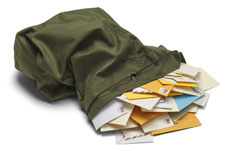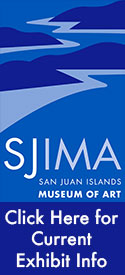Extinction is Forever…
Posted November 18, 2018 at 10:51 am by Tim Dustrude
 In the SJ Update mailbag this morning we have this letter to you from Debbi Fincher…
In the SJ Update mailbag this morning we have this letter to you from Debbi Fincher…
Hi Friends, Family and all around Supporters of J, K & L Pods,
I have to try… I can’t sit idly by when our local orca pods need our help more than ever. I want to be sure we all have the information we need to help our Southern Resident Killer Whales (SRKW) from going extinct.
I am sharing various sources should you have missed them. I know it sounds alarmist, but talking with orca experts, it is not. Recently, I attended a line up of speakers at the SJI Orca Recovery Day of Action outing where Dr. Deborah Giles spoke. Dr. Giles said, “It is beyond dire.” We were talking about their need for more salmon. Dr. Giles is a respected scientist working to help save these critically endangered species. Dr. Giles has also been involved with the scat detection dogs on the water, like Tucker the Black Lab, too. If you’d like to read more about her and her efforts to save J, K, L pods from extinction, her non-profit is wildorca.org. I trust her analyst of this situation.
We moved here in 1997; Ken Balcomb of the Center for Whale Research, which he founded in 1976, was already clanging the gong as he was noticing a decline in the salmon with each passing season. In 2005, J,K,L Pods were put on the Endangered Species list. What have we changed to help bring more salmon to our waters to feed these whales? Whatever it is, it is not working. They listed them because they were in danger of extinction throughout all or a significant portion of their range. The time has come to a tipping point. We can no longer wait to take action; we must be BOLD and willing to act now on the difficult decisions we have put off for these 13 years. It is critical we address over-harvesting of their preferred food, salmon. Please speak up for Granny’s family; her 74 family members need our help today!
As you may know, Gov. Inslee put together an Orca Recovery Task Force about six months ago, and they submitted their recommendations for the Governor. It has been brought to my attention during this Orca Recovery Day of Action outing on SJI, a guest speaker, Stephanie Solien, who is the Co-Chair of the Gov. Orca Recovery Task Force that of the 36 recommendations being made to the Gov to help recover J, K.L Pods, NOT ONE is to address recreational and commercial fishing of salmon, the very first thing they could do to put more fish in the mouths of our SRKW. I don’t understand the disconnect. These family members are dying because we humans are not willing to change our behaviors for the greater good.
We have three females pregnant in J, K, L pod right now, but without proper nutrition, they will most likely miscarry like the 69% average our of SRKW females have had in recent years. The collection of the orca scat is some of the science which helps us understand the issues facing our SRKW and should help us change our behavior. These scat detection dogs and their handlers along with the boat captains collected samples that they could test for pregnancy, the results are shocking, 69% miscarriage rate from the scat analyzed. However, in the last three years, the Center for Whale Research shared it was 100% miscarriage rate and/or no viable pregnancies for J, K, L, Pod females. It’s beyond heartbreaking; it’s beyond dire. IT’S TIME TO ACT AND FOCUS ON THEIR FOOD FIRST!
A week ago, I heard of the 11th-hour recommendation by my Senator, Kevin Ranker, who represents the 40th District in WA State. Kevin Ranker broke group rules and pushed this 3-5 year moratorium on recreational and commercial whale watch boats through the Task Force without any public comment or respect for the process. No matter what side you are on this issue, it does nothing to help bring back fish to the SRKW. It takes the focus off of their immediate need for more salmon. By adding this last minute item, we the public did not get to weigh in. Many of us spent many hours reading through the proposed recommendations and then voting on what we felt held more of a priority to help our SRKW. As I stated already, this moratorium for whale watching was not on this survey, nor was a recommendation to put a 3-5 year moratorium on recreational and commercial salmon fishing. If they are serious about helping these whales, they must look at salmon fishing, too.
This summer on August 28 when Gov Inslee’s Task Force was meeting in Anacortes asking the questions about what can we do to help these starving SRKW, here on the south end of San Juan Island, were recreational wild chinook fishermen in the very waters these orcas come to feed in the summer months. This area is our SRKW critical habitat. We know they have not been in our waters with as much regularity over the last 4-5 years because of the decline in their prey, yet we continue to add insult to injury, and we keep fishing. However, these whales were in and around this area during the recreational wild chinook fishing season this year and probably last year, too.
At this Orca Recovery Day of Action outing on Saturday, I heard an islander comment to the Co-Chair of the Task Force that he knows of fisherman that didn’t even eat their catch yet from this summer, they are in their freezers for later. These whales are losing babies and family members at a rate never seen before except for the captures of these whales for Sea World and marine lands, and we cannot connect the dots? They need every available salmon right now to recover from the brink of extinction. Gone are the days of bountiful runs. We are at historic lows. I’m not saying that over-fishing is the only issue, but it’s one we have to address now. I hope that some good recommendations will come out of this process, but if we don’t focus on ways to increase their food supply quickly and build in sustainability as our first action steps, we may be out of time. Scientists are speaking up against this moratorium for the whale watch boats. Recommendations have already been included in this process to add a new permitting program for the industry and other recommendations to help limit their impact on the SRKW.
From a King 5 news article by Alison Morrow, “On the water, the whale watch operators play a role in managing the behavior of other vessels. So, some people consider it a disadvantage that you can look out and see the whale watching boat and know where the whales are. But we are asking vessel operators to slow down when they are a half-mile away from the whales now. That means the sport fisherman who is running from port to his favorite fishing hole; he’s going to be going fast and not realize the whales are there. But if he sees the whale watch boats, he’ll know he needs to slow down,” Bain explained.“Bain found that a typical commercial ship might have a source level of 185 decibels, a recreational boat might be at 165 decibels, but whale watching boats going the same speed as the whales emit sound at 145 decibels or even 120 decibels. Because they’re required to be at least 200 yards away from the orcas, Bain says they’ve got at least 50 decibels of attenuation before the sound gets to the whales. So it’s quieter than what it would be on a windy day. According to Bain, faster boats further away are going to be louder.” This week a preliminary acoustics study of Haro Strait was shared online by Orca Behavior Institute (OBI). This is from their Facebook page, “To us, this suggests that rather than attempting to further mitigate the comparatively minor contribution of whale-watching vessels to noise around the Southern Residents, the focus should be on quieting the loudest (likely high-speed recreational boats) and longest (likely slow-moving shipping traffic) sources of noise.” OBI.
The reality is, Transient orca whales have been around with much more regularity these past two years and are thriving because they have an abundance of their preferred food source, marine mammals. Why is one orca ecotype thriving and the other dying, they share the same waters? The science points to the lack of preferred food by the one ecotype, SRKW, without proper nutrition they have increased health issues. If we can bring back the volume of salmon, it will give them the best chance of surviving and one day, hopefully, even thriving. Another factor to consider, if we cull seals and sea lions as I’ve heard mention by our own Governor in the news this summer, as a way to reduce their salmon intake, we will be taking the prey away from the Transient whales which rely heavily on these pinnipeds in the San Juan Archipelago. We must tread lightly; We may cause another ecotype of orca to suffer from loss of prey.
I am asking you to get involved. Be a voice for Granny and Ruffle’s kin. Let Tahlequah know you saw her grief when she carried her deceased baby over 1,000 miles this summer. Let’s speak up for them today! THEY NEED MORE SALMON NOW!
Here are some ways you can be involved. Contact Gov. Inslee and ask him to focus on returning salmon to the SRKW the fastest way possible. Ask him to please consider a 3-5 year moratorium on recreational salmon fishing and work with commercial salmon fishers to reduce harvesting of Chinook salmon at the very least. We know culling seals, and sea lions aren’t a useful management tool, the science has been done on this before. While we wait for a moratorium on salmon fishing, advocate for a quota of salmon to be given to our SRKW when they divide the salmon allotments for commercial, recreational and tribal. The orca should have a “seat” at the table. Look up Pacific Salmon Treaty and North of Falcon process if you’d like to know more. Of course, there are many other ways we can help the SRKW with salmon habitat restoration, staying involved on the Atlantic Farmed Salmon operations and the Piscine ReoVirus and breaching the 4 Lower Snake River Dams. damsense.org might be helpful.
https://www.surveymonkey.com/r/srkwtfpubliccomment Public Feedback on Gov. Inslee’s SRKW Recovery Task Force. It’s a quick freeform note you can add your thoughts now:)
Phone Gov Inslee Office 1-800-902-4111 governor.wa.gov Request a meeting with Gov. Inslee on his website to discuss these matters to help save J,K,L Pods or use his email comment form.
Contact local San Juan County Councilman, Jamie Stevens [email protected] It’s my understanding that Jamie Stevens voted (in the Fishbowl Groups and then may have abstained from the final vote) to allow the moratorium of 3-5 years on recreational and commercial whale watching industry which was pushed in the 11th hour and didn’t allow for public comment. Again, no matter what side you fall on this 11th hour recommendation, there are experts speaking up to say this is a mistake. Dr. David Bain is on record as saying this may end up hurting the SRKW for multiple reasons. https://www.king5.com/article/tech/science/environment/whale-watching-ban-may-hurt-southern-resident-orcas-expert-says/281-613152404 If you want to hear more from him. Dr. Bain has 35 years of expertise with vessel noise on the behaviors of killer whales.
Contact Kevin Ranker [email protected] Senator for the 40th District if you feel inclined to do so. My concerns are the way he did this and why he did this. By doing this “bold” action, as he has repeatedly stated, it has taken the focus off the pressing and immediate need for JKL Pods – MORE SALMON! It has put people against one another instead of trying to find meaningful solutions. I question his motive, if he really has the best interest of JKL Pods in mind, then why doesn’t he also add a 3-5 year moratorium on recreational and commercial salmon fishing? I have written Senator Ranker with these exact thoughts. I also wonder if Senator Ranker considered the way in which this was done might have a negative impact on our economy? I was out of town when I saw the headline, “Gov. Orca Recovery Task Force puts a Ban on Recreational and Commercial Whale Watching.” This is how the media shared the news near and far. Just wondering how this will unfold?
Again, thank you for allowing me to share information that might help us all be more informed in this process. I know I’m learning something new most days about this process, too. I want to get this out so people can comment on the Public Feedback link above before the day is over, please take a minute to comment…I believe we all want to see J,K,L Pods families thrive and grow, but we all have to look at ways we can help. Be a voice. Take action. Thank you on behalf of our SRKW. Hopefully this did not offend you, if so, I’m sorry. I just think we are all stakeholders and more of us need to be involved and speak up for J, K, L Pods and their best interests. Thanks again!
Sincerely, Debbi
You can support the San Juan Update by doing business with our loyal advertisers, and by making a one-time contribution or a recurring donation.










3 comments...
Debbie… Your actions & passion are commendable! Can you make some kind of video, amateur is fine, so it can be shared & possibly go viral?? Have the kids film you, make it a good project for them.. It might be easier to share all this through a video.. Just a thought! You’re awesome!! Keep up the AMAZING efforts!! YOU ROCK!! XO
A friend sent me an email after reading my letter and asked a great question about the toxins in our waters. Part of my reply, ” I, too, am very concerned with the toxins in our waters. I didn’t go into great detail in my letter, but in hindsight, I wish I would have. It’s my understanding that the Transient orca is actually more “polluted” than the SRKW because they eat higher off the food chain, but because they have an abundance of their preferred food source, marine mammals, these toxins are dormant in their blubber. So, they aren’t having health issues! Our SRKW on the other hand, have to metabolize their own blubber to get through those lean periods, and now the toxins get in their bloodstream and wreak havoc on their immune and reproductive systems. You are also correct, these fat-soluble toxins are being passed onto the newborn babies of JKL Pods through mom’s rich milk fat. So double whammy. The Transient whales are thriving and growing in numbers even though they share these same polluted waters with J, K, L Pods. Transient orca is having babies that survive and thrive in our ecosystem. Orca Behavior Institute documented Last Seven Years: More Transient orca births than there are SRKW. So that is where my first focus has been, trying to get more salmon first for these whales, but yes, we need to continue to address the legacy toxins in our ecosystem. It’s a perfect storm, really, years of neglect and abuse on our ecosystem has taken its toll.
Thank you, Alison! Did you hear about this? Last night, 11/16/18, Orcasound, a cooperative hydrophone network, shared this: “Massive container ship, 3 football fields long, just steamed through Haro Strait at 21 knots bound for Seattle from Vancouver, saturating the ITC hydrophones (which I only hear happen a few times per year). Get ready for some noise down in Puget Sound, SRKWs = Southern Resident Killer Whales!” J, K, L Pods have been down in that area over the last few days. We need to be putting more restrictions on these large vessels as fast as possible. Talk about trying to find the very few salmon that are around with echolocation as this amount of noise pollution assaults our whales and waters. We must act with urgency on these issues, too.
By submitting a comment you grant the San Juan Update a perpetual license to reproduce your words and name/web site in attribution. Inappropriate, irrelevant and contentious comments may not be published at an admin's discretion. Your email is used for verification purposes only, it will never be shared.